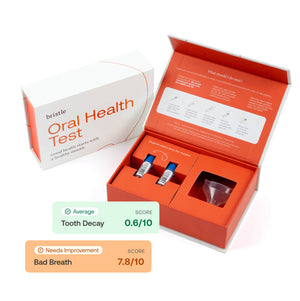The Study
Where: University of Massachusetts Medical School, Worcester, Massachusetts
Published: JCI Insight, Oct 22, 2021
The Takeaway
The oral microbiome of patients with long COVID had higher abundances of inflammatory bacterial species than patients who did not develop long COVID. This suggests oral microbiome dysbiosis may contribute to long COVID symptoms, including fatigue and “brain fog”.
What it looked at
The researchers investigated if the oral microbiome of patients with long COVID differed from patients who did not develop chronic symptoms. The study compared the oral microbiome composition of 14 patients with COVID symptoms less than 4 weeks and 14 patients with symptoms greater than 4 weeks to see if there were differences in the bacterial species present.
What it found
The found 29 bacterial species whose abundances were associated with ongoing symptomatic COVID-19. 2 of the 3 top predictors belonged to the genus Veillonella, which can cause infections in humans.
Additionally, multiple species of the Prevotella genus were found in higher abundances. Prevotella exhibits inflammatory properties and has been suggested to promote chronic inflammation.
4 of the 29 species belonged to the Actinomyces genus. Actinomyces can cause a rare infectious disease called actinomycosis, in which the bacteria spread to the respiratory tract and cause inflammation.
Why It Matters
Further research is needed to validate their findings, but this study suggest the oral microbiome may play a role in the development of long COVID symptoms by promoting inflammation. The researchers concluded “The microbiome may therefore hold the key to better understanding the post infection prolonged syndromes now facing patients after they recover from acute infection and provide a way to predict and subsequently act upon and prevent the development of long COVID”.





